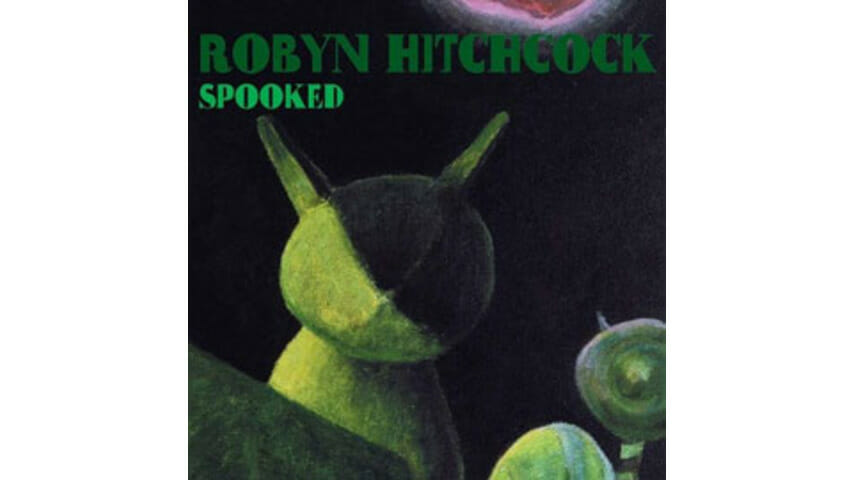Robyn Hitchcock – Spooked

The first cut on Robyn Hitchcock’s new album deals with a guy stuck in a dysfunctional relationship with his TV set; it’s precisely the sort of half-charming, half-creepy stuff this resolutely quirky artist has been coming up with since he was in The Soft Boys 20-some-odd years ago. But “Television” sounds less Hitchcockian and more Appalachian, thanks to the presence of David Rawlings (who produced Spooked) and his ever-present musical partner, Gillian Welch. It’s a song about a strictly contemporary subject delivered like some old-time murder ballad. I suspect the likelihood of this sort of incongruity is part of what prompted Hitchcock to get in touch with the bluegrass duo about doing this record in the first place. And as soon as Welch half-opens her throat to harmonize with Hitchcock on the first chorus, it’s obvious he’s made the right choice.
-

-

-

-

-

-

-

-

-

-

-

-

-

-

-

-

-

-

-

-

-

-

-

-

-

-

-

-

-

-

-

-

-

-

-

-

-

-

-

-








































